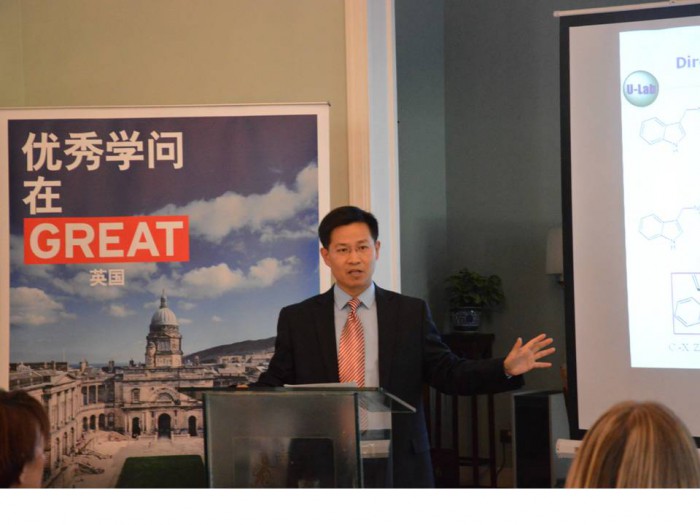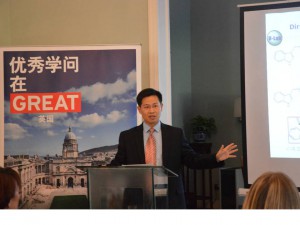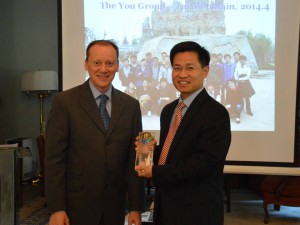3rd November 2015 Beijing, China
Catching future Nobel winners early

Much of what we do in the Science and Innovation Network in China (and perhaps globally) produces short and medium term eye-catching results: our tech partnering missions generate collaborations and multi-million pound contracts ; our GREAT promotional events attract large audiences from across China; we’re racking up the number of joint centres and joint laboratories we’ve helped to establish. While we’re rightly proud of all of that, it’s good sometimes to focus on the longer term.
China is a certainly country where policymakers take the long term seriously. They’re investing billions of pounds in the next generation of scientists, technologies and equipment. China has the world’s most powerful supercomputer, will have the only space station in existence by the mid- 2020s, and is, as we speak, assembling the world’s largest radio telescope in the mountains of Guizhou. China has just started on the road to Nobel science success with its first Prize for Medicine going to Tu You You last month (admittedly for an achievement that was decades old) but it is almost certainly a sign of things to come.
We want British researchers to work with the best scientists in the world. We need to be building links with the new generation of innovative and outward looking scientists in China. The Newton Programme in China is a fantastic boost towards this goal, awarding hundreds of scholarships and research grants to young scientists at the top of their fields. SIN China will aim even younger next year, with the launch of a new partnership, funded by the Global Partnerships Fund, to promote the use of UK space science in Chinese secondary schools.
And it was in this spirit of building links with the Nobel laureates of the future, that we hosted the Royal Society of Chemistry (RSC) Merck Award ceremony at the Ambassador’s Residence last week.
Deputy Head of Mission Martyn Roper presented the award to Professor You Shuli from the Shanghai Institute of Organic Chemistry – the first Chinese national to win the Merck prize.
Still in his forties, Professor You has already accumulated a list of international science awards and published papers for his CV. He was positive about this new award from the UK and looked forward to taking up the next part of his prize: a lecture tour through our top universities and a chance to find collaborators in the UK.
Professor You laugh ed as he attempted to explain (in immaculate technical English)to a bunch of diplomats that his work involved the “development of catalytic asymmetric dearomatisation reactions opening elegant access routes to complex molecular architectures”. Put simply, he is finding quicker, easier and cheaper ways to make pharmaceuticals.
ed as he attempted to explain (in immaculate technical English)to a bunch of diplomats that his work involved the “development of catalytic asymmetric dearomatisation reactions opening elegant access routes to complex molecular architectures”. Put simply, he is finding quicker, easier and cheaper ways to make pharmaceuticals.
A staggering 47 of the RSC’s previous award-winners have gone on to win Nobel Prizes. Professor You Shuli might well be a good bet.
